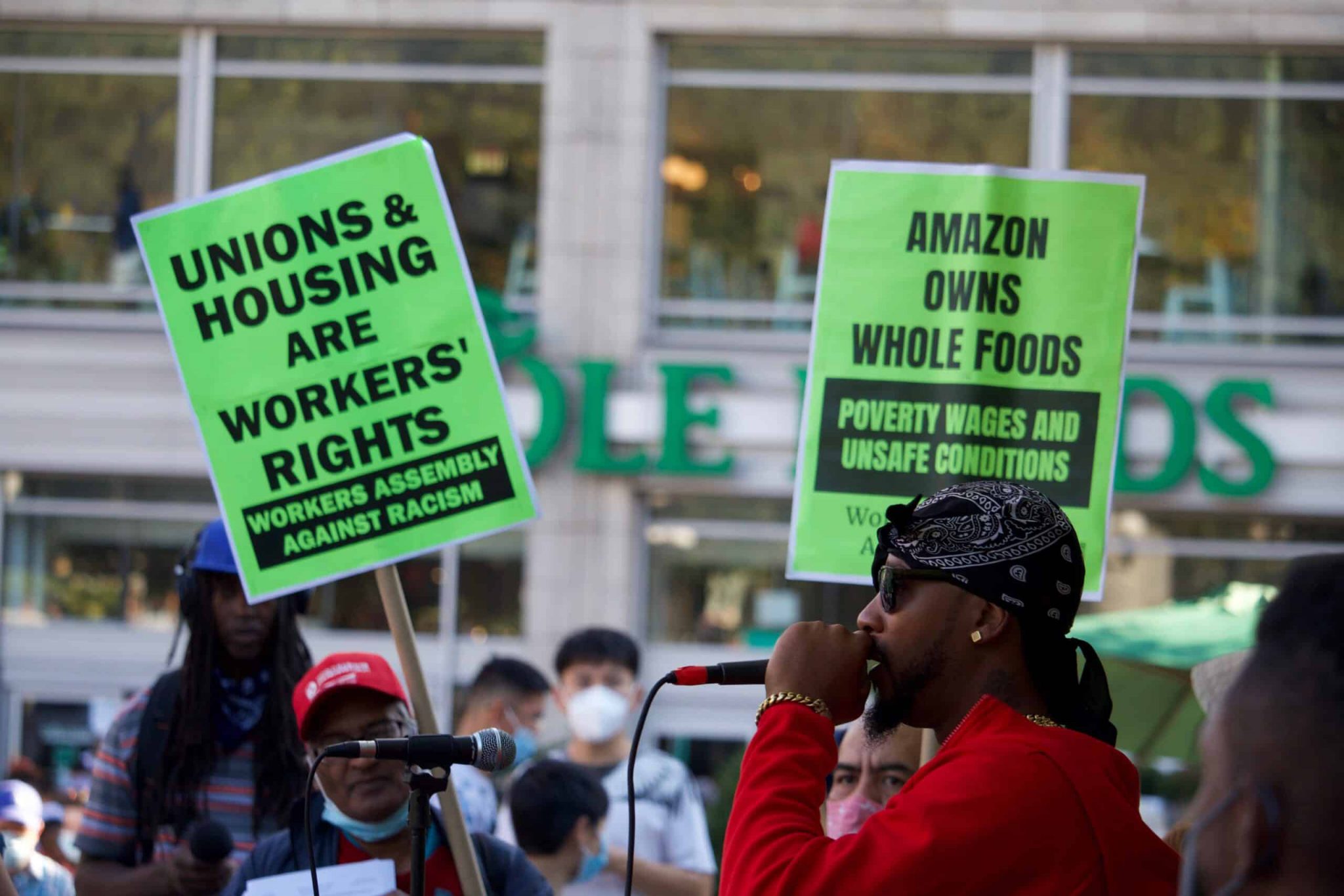
Fred Wang is a student at Harvard Law School.
Happy Labor Day! For more on the origins of this federal holiday celebrating workers, see Kevin’s weekend post, which provides a helpful backgrounder.
There’s much reason for optimism this Labor Day. Union momentum and public support for unions are surging — a historic trend largely driven by young workers across the country. In short, Rani Molla recaps on Vox’s Recode, “unions are winning again.”
But we’d “have more to look forward to,” Steven Greenhouse writes in the Washington Post, if corporations and courts didn’t make it so hard to unionize in the first place. As the past few months of union busting have made clear, employers often take serious measures to interfere with and suppress union-organizing efforts. This “routine silencing of workers who seek to form a union or enforce their workplace rights,” Terri Gerstein argues in the American Prospect, poses “the most prevalent form of cancellation in our society” — despite what the loudest “cancel culture” opponents will tell you.
President Biden promised to oversee the “most pro-union” administration in U.S. history. And he’s taken steps towards making good on that promise. But as the November midterm elections near, Biden’s track record might not be enough to win over blue-collar voters, Katia Dmitrieva and Jordan Fabian report over at Bloomberg. Many workers are dismayed at the administration’s “failure to deliver on campaign promises such as a federal minimum wage hike.” Labor reform initiatives such as the PRO Act have stalled in Congress. “The lack of enthusiasm,” the authors note, “holds gloomy implications” for the Democratic Party come November — and demonstrate just “how hard it will be for Democrats to rebuild their deep historic ties with union voters.”
Finally, Ben has an article published in The Supreme Court Review covering Cedar Point Nursery, a 2021 Supreme Court decision holding that the government must pay employers before requiring them to admit union organizers onto company property.
In the piece, Ben argues that the decision was wrong on its own terms. To justify its holding, Cedar Point maintained that union-access regulations — unlike, say, “standard health and safety inspections” — were “not germane” to “any risk posed to the public.”
This argument, Ben shows, ignores what labor law actually does. The challenged union-access provision for farmworkers, for instance, was a “direct response to widespread violence that [had] engulfed California farms.” And by “facilitating unionization,” union-access rights also “facilitated collective bargaining agreements that contained a robust system of safety and health measures,” such as “pesticide protection measures.” In other words, the regulation too served public health and safety ends.
An excerpt of the introduction is up on the blog, and OnLabor readers can access the full article for free (for thirty days) here.






Daily News & Commentary
Start your day with our roundup of the latest labor developments. See all
February 26
Workplace AI regulations proposed in Michigan; en banc D.C. Circuit hears oral argument in CFPB case; white police officers sue Philadelphia over DEI policy.
February 25
OSHA workplace inspections significantly drop in 2025; the Court denies a petition for certiorari to review a Minnesota law banning mandatory anti-union meetings at work; and the Court declines two petitions to determine whether Air Force service members should receive backpay as a result of religious challenges to the now-revoked COVID-19 vaccine mandate.
February 24
In today’s news and commentary, the NLRB uses the Obama-era Browning-Ferris standard, a fired National Park ranger sues the Department of Interior and the National Park Service, the NLRB closes out Amazon’s labor dispute on Staten Island, and OIRA signals changes to the Biden-era independent contractor rule. The NLRB ruled that Browning-Ferris Industries jointly employed […]
February 23
In today’s news and commentary, the Trump administration proposes a rule limiting employment authorization for asylum seekers and Matt Bruenig introduces a new LLM tool analyzing employer rules under Stericycle. Law360 reports that the Trump administration proposed a rule on Friday that would change the employment authorization process for asylum seekers. Under the proposed rule, […]
February 22
A petition for certiorari in Bivens v. Zep, New York nurses end their historic six-week-strike, and Professor Block argues for just cause protections in New York City.
February 20
An analysis of the Board's decisions since regaining a quorum; 5th Circuit dissent criticizes Wright Line, Thryv.